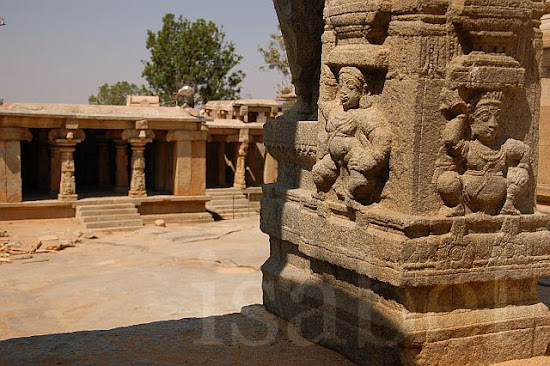Wherever you decide to live long-term, it’s always good to learn the local language. Learning at least a few rudimentary basics can take you a long way and help you connect with the local culture.
Many newcomers to Bangalore don’t bother learning Kannada, the local language. Many people come to the city from North India and can get by easily by speaking Hindi. English is also spoken by many people here. This ease of communication is also due to the Kannadigas’ amazing flexibility: many speak several South Indian languages, Hindi and English in addition to their native Kannada. As a result, many Indians from outside Karnataka living in Bangalore for a long time don’t speak Kannada at all. My landlady (who’s from Kerala) said she never learned Kannada in the almost 30 years she’s lived here because there are so many Malayalam and Tamil speakers living in our neighbourhood.
I also have the feeling that many North Indians don’t bother learning Kannada for chauvinistic reasons. The impression I get is that since they already speak Hindi, they think they don’t have to learn Kannada, a Dravidian language which they consider ‘inferior’ to their mother tongue. “Kannada sounds like the noise that’s made when you shake a tin can full of stones,” I’ve been told, or: “Why are you learning Kannada? You should learn Hindi instead, they you can use it all over India.”
Of course knowing Hindi would make practical sense, especially when travelling in North India, and this is the reason why many foreigners living here learn Hindi when they decide to study an Indian language. However, since I spend 90% of my time in Bangalore, it makes sense to me to learn the language spoken by its locals.
I’m glad I decided to learn Kannada. It wasn’t easy though. The first step was finding a teacher, which was not at all easy. Government officials make a lot of noise about outsiders who don’t know Kannada, vehemently declaring that they must learn it. But if the government is so adamant about this, then the Department of Kannada and Culture should organise Kannada language courses and provide proper training and support for aspiring teachers. After trying a few classes with teachers who turned out to be inexperienced or clueless about grammar or how to teach languages (I wrote about one experience here), I did finally find an excellent teacher who gave me a good grounding in the language. Unfortunately, after two years of weekly classes with her, she suddenly suffered a heart attack and passed away.
I couldn’t bring myself to find another teacher after that. But I did try to use my Kannada as much as I could. Our domestic help doesn’t speak English so I use Kannada with her. She even called up her brother one day and handed me her phone, telling me to say something to him in Kannada! Then there are many opportunities to speak Kannada in the neighbourhood with shopkeepers I deal with almost on a daily basis. They know I’m learning so they always make it a point to speak it to me. There’s the market sellers, the courier lady, the photocopy man, the ironing man, the man who runs the taxi company I sometimes use, the lady security guard in the metro, and of course the auto drivers.
There are indeed many good reasons to learn Kannada and knowing the language has often worked to my advantage. The fruit sellers at the market often give me extra fruit. Either they’re charmed by my Kannada or they’re overcharging me and feel bad so they give me an extra guava or banana – I’m not sure which is the real reason!
Then there was the time I was able to avoid a traffic fine because I said a few words to the police officer in Kannada. When the right turn from Old Madras Road onto 80 Feet Road was suddenly no longer allowed, a police officer stopped our car. He explained the new rule and then said: “So what to do?” This was the signal for a bribe. Then for some reason, he asked where we were going. When I answered: ‘Manege hogthaiddivi’ (We’re going home), he laughed, and then waved us on. No fine or bribe paid!
At the airport, the immigration officers can be difficult for no reason. When I was last leaving India on a trip, the stern-looking officer looked at my residence permit and asked me in a very gruff way why I wasn’t registered. If he had taken a moment to look over my documents he would have seen that I am indeed registered at the FRRO and that everything is in order. I answered simply: “I am registered, Sir.”
“Who are you in India with?!” he barked at me next. An unaccompanied woman must be a cause for suspicion – what would she be doing in India alone? I answered that my husband is employed in India. I then repeated the same thing in Kannada: “Nanna yejmaanru illi kelsa madthare.”
The stern officer’s demeanour suddenly changed completely and his frown literally turned upside down.
“Oh ho! Very good!” he said, beaming me a big smile. “Kannada mathadthira?”
“Howdu, naanu Kannada kalithaiddini”, I replied.
“Kannada kalithaiddira?! Tumba chennagide!”, he declared, stamping my passport with a flourish, no further questions asked.
Then just yesterday I was trying to catch an auto-rickshaw from MG Road to Racecourse Road but the pesky auto drivers didn’t want to use the meter for such a short distance and were all asking me for an inflated price. In these situations, I just keep trying and eventually find an honest person. The fifth driver I stopped also wanted extra fare. When I answered "Tumba jaasti" and walked off, he called me back: “Baani, Madame!”.
“Meter haktira?” I asked before climbing in.
“Neevu Kannada mathadthaiddira, adakke meter haktini!” he replied. (Since you’re speaking Kannada, I’m going to use the meter.)
We drove off and I got the usual questions fired at me: Where are you from? Do you work in Bangalore? How long have you been here? Do you like Indian food? Isn’t it too spicy for you? I have heard and answered these questions a thousand times so can answer them easily. He seemed impressed. When we stopped at a traffic light, he called out to the auto driver stopped next to us: “Anna! Nodi! Foreigner Kannada mathadthiddare!” The other driver gave me a smile and head bobble in appreciation.
When we arrived at Racecourse Road, my auto driver shook my hand and thanked me for learning Kannada. I paid him and told him to keep the change, but he refused. “I told you I would go by the meter!” he said, and drove off.
Free fruit, traffic fines avoided, frowns turned upside down, auto drivers who use the meter, appreciative smiles and head bobbles. Many good reasons to learn Kannada!





























































